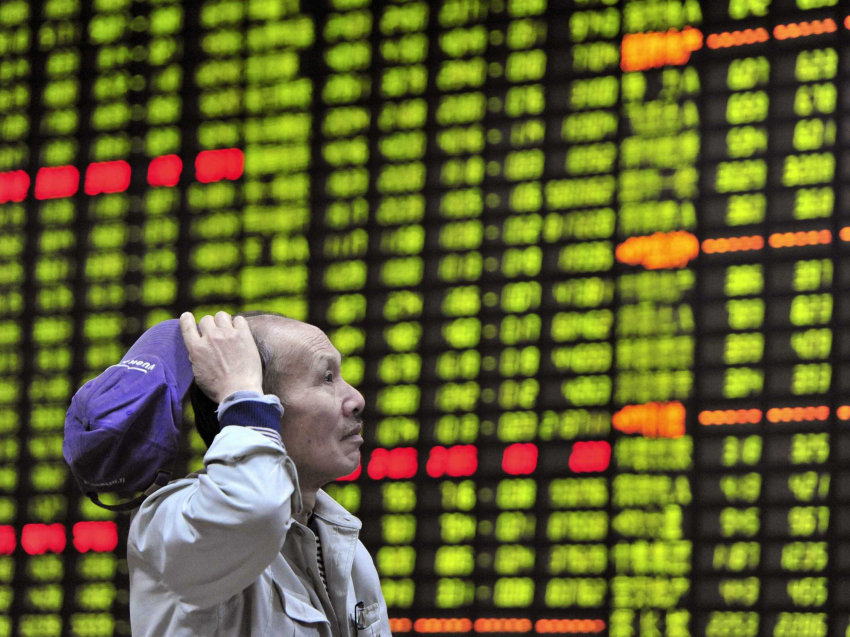HONG KONG (APP) – Asian shares tumbled Tuesday after a meltdown in Chinese stocks sparked a global equities rout and fuelled mounting fears over the outlook for the world economy.
Shanghai stocks tumbled 6.41 percent at the open, extending the previous day’s plunge on mounting worries over China’s faltering economy and its impact on global growth.
The dollar was weak against other currencies and oil prices remained in the doldrums after finishing Monday below $40 a barrel for the first time in six years, as financial markets sold off around the world.
Tokyo fell 4.13 percent in early trade, following a bruising session overnight that saw US stocks fall the most since the height of the financial crisis and European equities slump.
Hong Kong opened 0.67 percent lower, after closing at a fresh 15-month low on Monday, while Seoul was trading flat in early deals.
Sydney dropped sharply at the open before recovering to stand 1.52 percent higher by mid-morning.
“The world’s capital markets are in meltdown, and investors are asking what can stop the panic,” said IG Markets’ chief market strategist Chris Weston.
“Despite the outrageous moves in the European and US futures markets overnight, it is Asia that is at the epicentre of this concern.” Global equities took a battering overnight, with US and European markets plunging after an almost 8.50 percent slump in Shanghai — the heaviest daily loss since 2007 — sparked panic among world investors.
World equity markets have seen some $5 trillion wiped off their value since China’s surprise devaluation of the yuan on August 11 added to fears the world’s second-largest economy is weaker than thought.
Chinese shares have been extremely volatile since a huge debt-fuelled rally, which saw the market rise 150 percent in 12 months, collapsed in mid-June prompting Beijing to unleash unprecedented measures to support the equity market.
Dealers were braced for more heavy falls Tuesday, as they await news of more intervention from Beijing to rescue its free-falling markets.
It looks likely “that we will carry on the recent trend and if we do, it will be a rough day,” James Lee, managing director of First NZ Capital, told Bloomberg News.
The dollar remained low at 118.78 yen, little changed from 118.51 yen in New York trade Monday, but dramatically weaker than 122.06 yen seen in US trading on Friday.
The euro stood at $1.1570 and 137.50 yen in Tokyo, compared with $1.1606 and 137.55 yen in New York overnight.
US benchmark West Texas Intermediate (WTI) for October delivery was trading at $38.47 after closing at $38.24 a barrel on the New York Mercantile Exchange, its first below-$40 close since February 2009.
Brent North Sea crude for October, the international benchmark, was as $42.86 a barrel after closing at $42.69 a barrel in London, its lowest level since March 2009.














